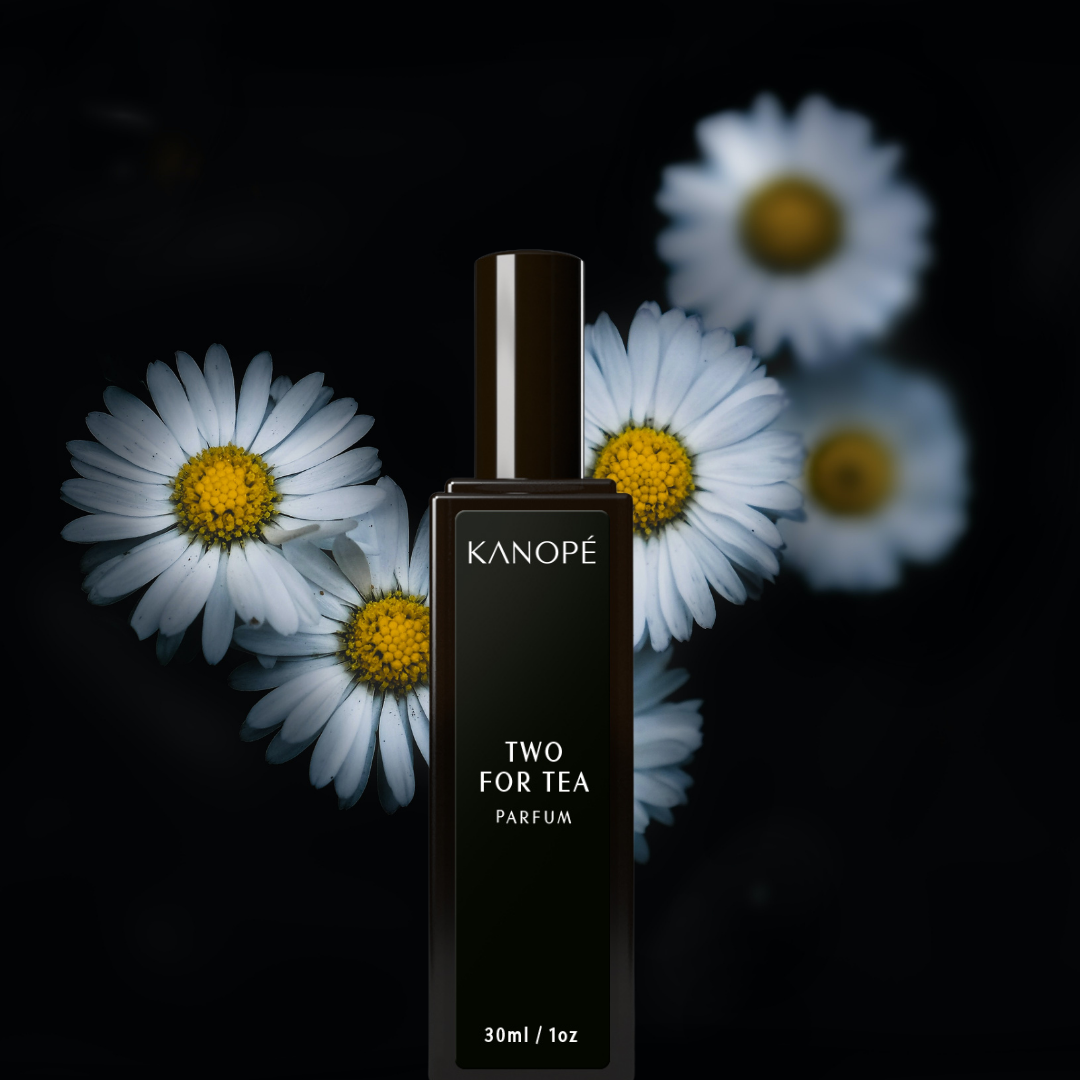A sense to our emotions
The sense of smell is a sense that is always in action, just like breathing, the sense of smell is a "machine" that is always working, without ever needing to rest.
We live our daily lives without even realizing the importance of this sense in our lives. And yet its impact on our quality of life is paramount!The sense of smell is closely linked to taste. Without it, the pleasure of cooking and eating would not be the same at all. The flavor of certain foods comes mainly from its smell. Think about when you have a stuffy nose during a cold, food doesn't taste quite the same.
Day after day, we are bathed in scents. Nature lulls us with its many scents, those of trees, flowers, summer evenings, the cold of winter or the rain.
There are also objects to which life has given mysterious scents. An old book with yellowed pages, an old garment, an old photograph, a place... As if the materials fixed the smell of the past.
The scents have the power to transport us in time and space. To bring us back years in the past and to make us travel towards known or unknown destinations.
They are linked to our emotions, whether they are good or bad.
But how does it work?
Carried by the air, when we breathe, the smell is first captured by our olfactory cilia which line the bottom of the nasal cavity. Once in contact with their receptors, a nerve impulse is formed and transmitted to the brain by the olfactory bulb, which sorts out the messages received. This information is then redirected to an area of the brain cortex where it will be recognized and identified.

The name of the smell (flower, food or other) and the identification of the memory to which it is linked only come later.
Just like our other senses (taste, hearing, sight, touch) our perception of odors is stored in our immediate memory and will later be stored in the long-term memory.
Smells are perceived very differently from one person to another. A scent that is pleasant to you may be unpleasant to others. This is due to the interpretation of our brain according to our experiences.
To give you an example, a person who lived his childhood in the countryside will surely remember the smells of fields and stables as a happy memory, it will remind him of special moments when he was a child. While others who have no connection with these smells may be unbearable by them, or even perceive them as aggressive.

When we live a particular moment, vivid, intense, the smell perceived at that moment will be recorded in our unconscious memory.
The day we feel this scent, this buried memory will come back and make us travel through time.
How to work on your sense of smell
You are passionate about smell and have always dreamed of creating your own perfume? (blog article Create a perfume)
Good news, becoming a Nez is not a gift! You are not born a Nez, you become one.The sense of smell is like a muscle that needs to be worked. To develop your olfactory abilities, it is important to use your nose daily with exercises. (blog post The olfactory pyramid)
For example, start smelling everything you cook or eat and write down in a notebook your sensations, whether they are good or bad, as well as the characteristics of the material you smell.
Start with something simple, like the smell of coffee. When I smell coffee, it's a pleasant smell for me. The trail is complex, fine and powerful at the same time, with a slightly smoky note. I feel a facet of hazelnut perhaps even a caramelized note. The smell is warm, round and reminds me of tender memories of Sunday mornings in family.
You can do the same exercise with essential oils, flowers, objects, anything you feel like smelling and analyzing. (blog post The olfactory families)One of my favorite exercises is to recognize smells with eyes closed.
It's a very complex exercise that few people succeed, even on smells that are sometimes very simple like lavender, lemon or orange. Without realizing it, when we smell a scent, our other senses help us to define it and remember it. Therefore, when we are deprived of sight and touch, some smells seem very different and more difficult to identify.
You can also try blind tasting. We have seen that smell and taste are closely related, we also eat with our nose. The sense of smell allows you to perceive the odor and the aromas of what you eat while the sense of taste allows you to detect the different flavors (sweet, salty, sour, bitter, beyond these four flavors, it is your sense of smell that is the most important). This exercise allows you to improve your sense of smell and to appreciate more what you eat.
So, are you ready to practice? Ready, set, smell!
The scent creators
Perfume draws the intensity of the emotions it brings to life from memories, making the perfumer a creative artist who speaks to the inner emotions of each person.In search of the Madeleine de Proust of each person, the perfumer will capture the sensations and feelings of a moment, a place, a memory, to make us travel through time.
He must show empathy and put himself in the place of others to transport us and make us dream.
They must be creative and daring to stand out. They must also learn to renew themselves and often know how to face and respect constraints.
Because most perfumers do not create what they want. When you work for a composition company or a perfume house, you have to follow what is called the marketing brief. It is in a way the specifications of the future perfume, it must give the universe and the character of the fragrance. It tells its story, an idea about its targeted clientele as well as the brand image.
But when you have the chance to create in total freedom, to let yourself be invaded by your creative breath, it is an indescribable moment!
We choose what we want to tell, we let ourselves be carried away by our feelings and those we want to transmit and bring out. A part of us is projected in the composition.
(blog post Natural vs Synthetic Fragrances)
Do not feel underestimated!
Too long underestimated, our sense of smell, odors and perfumes have a primordial place in our life.To taste our food, to shape our memory, to warn us of danger (we recognize the smell of fire very quickly) to influence our mood, they have the power to soothe, balance our emotions, and improve our mood.
Sometimes we forget that these are simple actions that embellish our daily life, especially since we work more often at home.
Getting up, getting dressed, getting ready, increases the good mood, the concentration and the optimization of the tasks to be done.
Of course, don't forget the small but essential final touch to spend a wonderful day, perfume yourself.
Take the fragrance you feel like wearing depending on how you feel (and yes, depending on the day's program, our mood, the weather outside, we don't necessarily want to wear the same fragrance every day), perfume yourself and breathe deeply!
Can you feel it on your lips? Can you feel that beautiful smile?


















Leave a comment